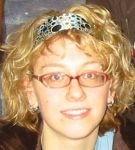Parents of children with ASD are utilizing myriad treatments, many lacking a basis in research. Green et al (2006) found that families employ an average of 7 different treatments simultaneously for their child with ASD. These parents continuously face a complex and high-stress decision making process when choosing interventions across their child's lifespan (Green et al, 2006; Trepagnier, 1999). Little has been documented about how parents navigate this web of treatment decisions.
The Theory of Planned Behavior (TBP) (Ajzen, 1991) describes the factors and process that lead to the adoption of a set of behaviors. In parents' management of their child's ASD, treatment utilization centers around the adoption of a set of interventionist behaviors by the parent. The TPB accounts for many of the most important variables and relationships affecting parents' management of their child's ASD. A conceptual model based on the TPB is proposed to explain treatment utilization behavior in parents of children with ASD.
This model is an attempt to address the lack of literature on the treatment utilization behavior of parents managing their child's ASD. Intervention for ASD often involves parents adopting complicated intervention-specific behavior sets. The TPB addresses this and provides an excellent framework to base a description of parents' treatment utilization behavior. The process described in this conceptual model is one that parents undergo repeatedly throughout their child's life, underscoring the importance of investigating the strength of the relationships proposed in this model with empirical testing.
|
